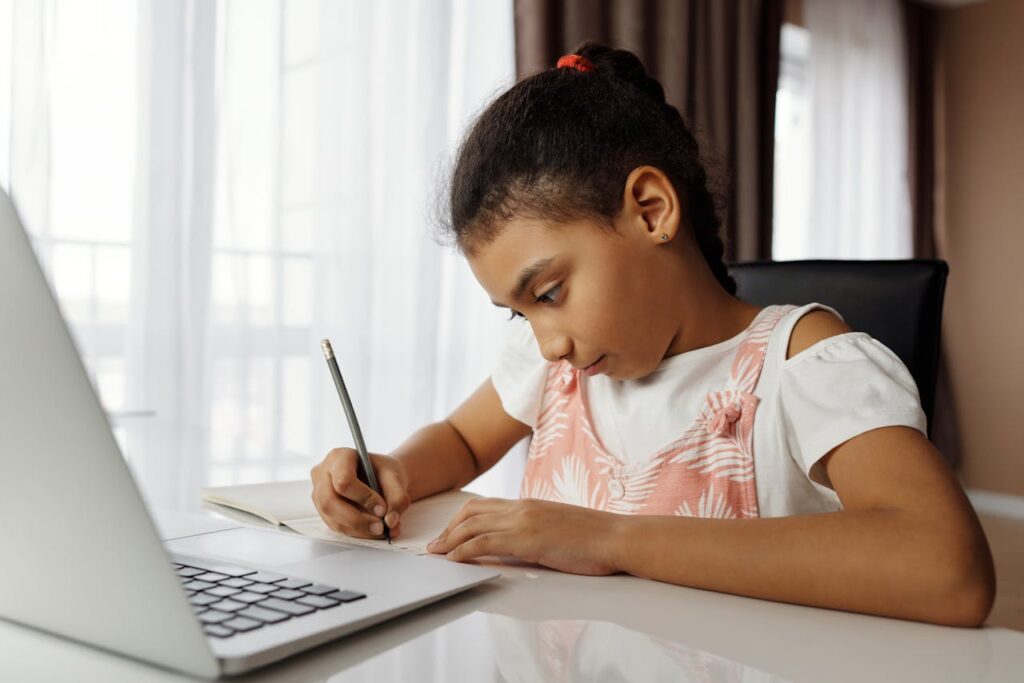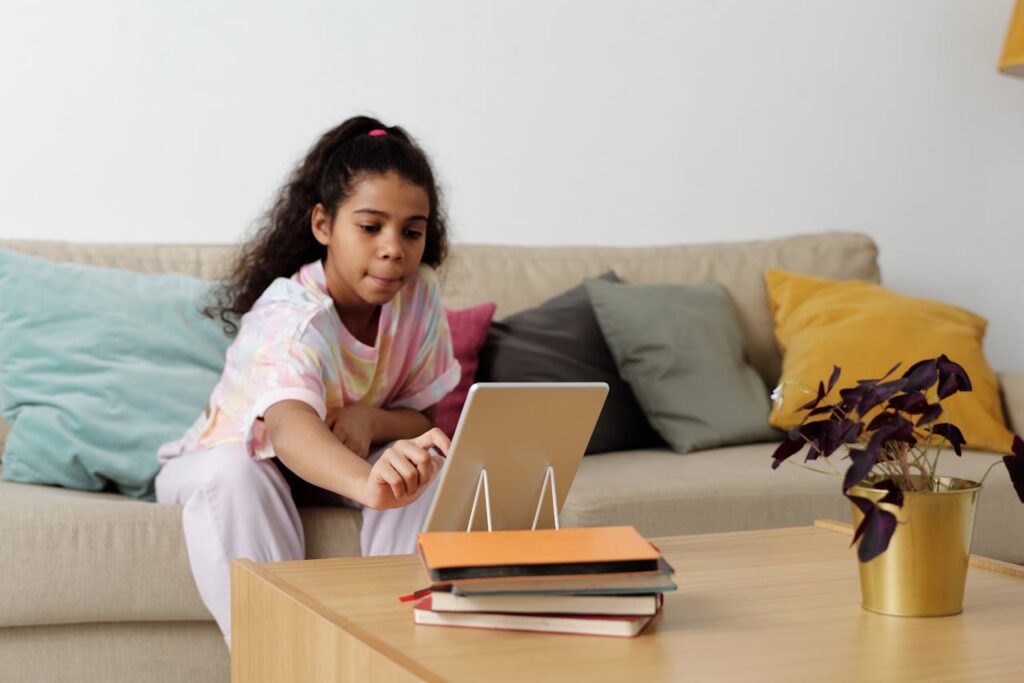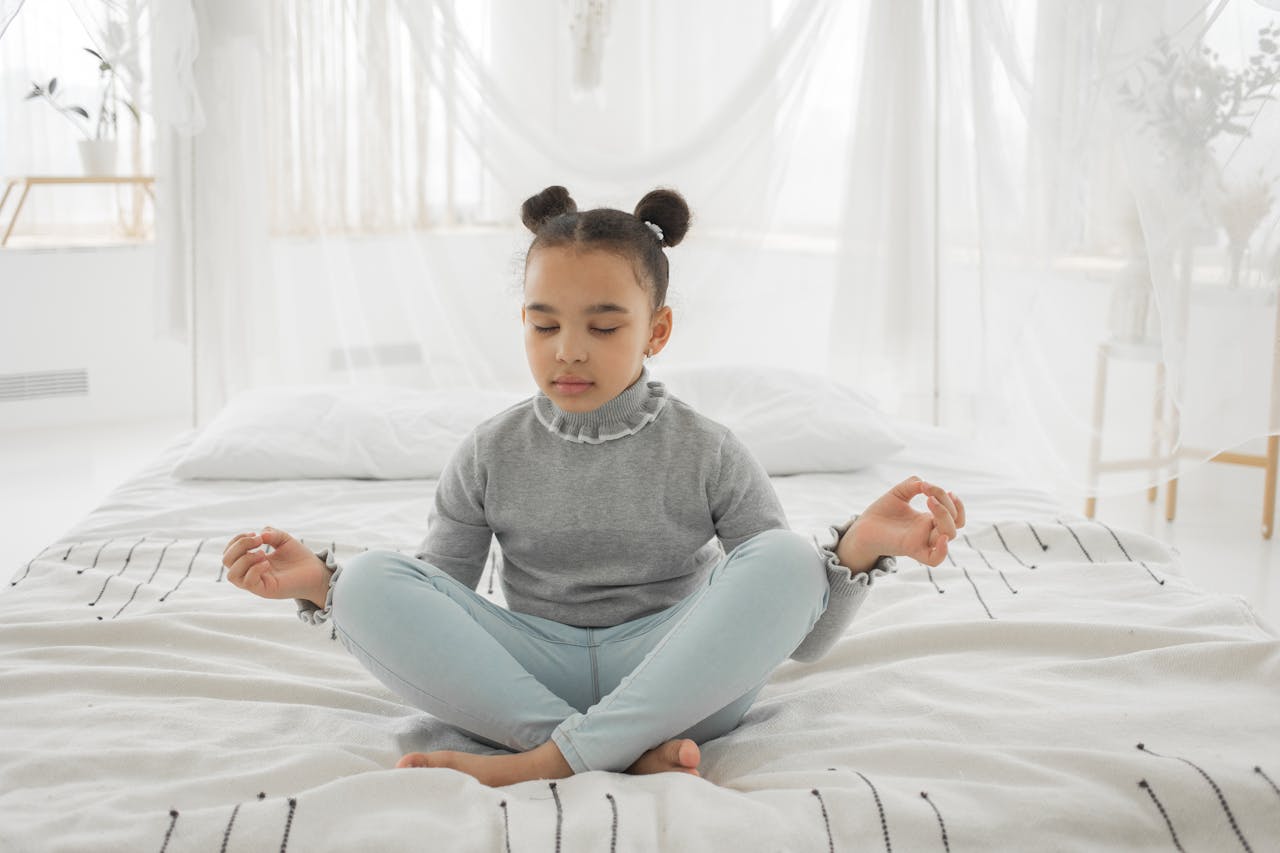Staying home alone for the first time is a big step in a child’s life…and a parent’s. It can be nerve-wracking the first few times…will they be okay? Will they destroy something, spend a fortune on pay-per-view, or torment the cat? If you are wondering at what age can a child stay home alone, you have to read this article.
Handling staying at home is a form of self-determination. Self-determination theory is a framework for studying human motivation. When applied to kids, it means helping them learn autonomy while still achieving support. It says we have three needs…autonomy, competence, and relatedness. This sounds complicated, but it’s basically about supporting wellness by giving them enough, but not too much, freedom.
Staying at home alone for a period of time is important for developing autonomy, but at what age can you leave kids home alone?
The Appropriate Age For a Child to Stay Home Alone
Every child is different. Children mature at different rates and only you know what your child is ready for. However, most child experts say an appropriate age to stay home alone for the first time for a few hours is eleven or twelve. Some children might be able to handle staying alone for a short period as young as 8 or 9. Others might not be ready until thirteen or fourteen.
Make sure your child has a cell phone and all of the phone numbers they need. This should not only be your cell phone number, but they should also have another trusted adult in case there is an emergency and, for whatever reason, you are not answering the phone. Some parents also like to give their children the police non-emergency number if they feel they are ready for that. Talk to them about when they should call 911.
👉 Check out this article: “Kid Doing Homework: Challenges & Strategies for Parents to Support Kid Learning Journey” to learn simple and effective ways to help your child succeed.
Your child may also start to push this boundary themselves. They may express frustration about having to have a babysitter, for example. Or your child may feel less safe and may need encouragement and reassurance. At this age, children are starting to have a good sense of what they are capable of, but are likely to overestimate it.

Credits: Pexels
At What Age Can a Child Stay Home Alone by State
Some states have set legal requirements for when can a kid stay home alone and may define leaving the child alone as child neglect. You should make sure that you know what age can a child stay home alone by state.
The states that have legal ages are:
- Colorado: 12 years;
- Delaware: 12 years;
- Georgia: 8 years;
- Illinois: 14 years;
- Kansas: 6 years;
- Maryland: 8 years;
- Michigan: 11 years;
- New Mexico: 10 years;
- North Carolina: 8 years;
- North Dakota: 9 years;
- Oregon: 10 years;
- Tennessee: 10 years;
- Washington: 10 years.
Rather than having a legal requirement, most states and local jurisdictions instead have guidelines that might be taken into account. As an example, the guidelines for Fairfax County in Virginia say that children 8 years and older should not be left unsupervised, that 9 and 10-year-olds can be left for up to 1.5 hours during daylight, etc. Check the guidelines for your area.
Illinois has the highest minimum age and most children are more than ready to be left at home alone at that point. Illinois law says the child may not be left for an “unreasonable amount of time.” However, it doesn’t specify what that time is and many parents feel they can’t leave their thirteen-year-old alone even briefly. The process of reducing the age to 12 has begun, but is slow.
Staying Home Alone Overnight
An overnight stay requires a much higher level of maturity. So, what age can a child stay home alone overnight? Most experts recommend not leaving children under 16 alone overnight. Teenagers are not always responsible enough…and some will take advantage to break serious rules, such as sex or alcohol consumption. With younger kids, if you do want to stay overnight somewhere without them, then you can consider alternatives such as sending them to spend the night with family members or arranging a sleepover with friends.
However, self-determination theory indicates that leaving older teens at home overnight is an important part of development. Many children leave home at 17 to go to college. Going from a completely supervised home environment to a dorm can be too big a step, and children who aren’t ready to be alone are more likely to get into trouble, such as excessive partying.
In other words, looking for times when you can leave 16 and 17-year-olds alone overnight to help them prepare for adulthood is good, but have a friend, neighbor, or family member check in on them so they have some adult supervision.
Make sure they have enough food in the house to cook dinner…or suggest they order dinner from a favorite place. The latter might be a better idea for some kids, who either can’t cook or can’t be 100% trusted in the kitchen. Tell teens not to tell their friends their parents are out of town. This can lead to a lot of pressure to allow “parent free zone” type behavior. Teenagers should not be throwing unsupervised house parties, former or otherwise. They should also keep their cell phone charged and with them so you can contact them easily to check on them.

Credits: Pexels
Particularly responsible teens may be able to handle being home overnight at 14 or 15. Also, there is always a risk that there might be some emergency, such as a medical emergency, that could result in your children being left alone unexpectedly. Make sure they know who to call in that situation.
Think, too, about your own readiness. Leaving your child alone but calling them every five minutes won’t help their development. It can be hard to let go even a little bit, but it’s an important part of parenting to let them spread their wings.
Evaluating Your Child’s Readiness
Age guidelines are just that: Guidelines for when can kids stay home alone. Your child needs to be comfortable staying home alone. This relates to competence and autonomy. Competence means they need to be able to handle any situation that might come up. Things like knowing when they should call 911 before calling you, knowing how to use the first aid kit, etc.
Autonomy, on the other hand, is their readiness and comfort level about staying home. Remember that while children will often overestimate their own competence, they are a lot less likely to overestimate their autonomy. However, you should do test periods where you are not that far away so if they realize they are not as ready as they thought, you can return. Consider these factors:
- Your child’s maturity level.
- The length of the trip. It’s best to start with short errands and extend the time.
- Whether your child follows directions independently, without you standing over them.
- Whether there are younger siblings staying with them. Some kids may be ready to be left alone, but not ready to supervise their six-year-old sister.
- The safety of your neighborhood.
- Whether you have anyone who can check on the child.
- Whether the child feels safe.
- Your own comfort level.
Children with mental health issues, disabilities, or neurodivergent traits may or may not be slower to be ready to be left alone. Apply the same rules, but also consider, when deciding when can a kid stay home alone, things such as what will happen if your disabled child falls and is unable to get up without assistance.
Will the child need to get food during the outing? If so, can they cook it themselves or should they order food? Should you order food for them before you leave? Younger children should not be allowed to use the oven or stove without supervision, but might be able to handle microwaving a TV dinner.
👉 Discover how chores can benefit your child: Read “The Power of Chores for Kids: Building Responsibility, Confidence & Independence” and help them grow!

Credits: Pexels
Emotional and Psychological Readiness
Your child’s emotional maturity level is key to when they will be able to stay home alone. How do they handle fear? Look for signs of emotional maturity such as safely expressing anger, taking responsibility for their emotions, and separating them from their identity. A child who lacks emotional maturity may panic when you leave and hurt themselves or damage something. They may become stressed, and they may take it out on you or, worse, their siblings.
If your child doesn’t want to be left alone, then they are probably not ready. However, you need to work with them to develop comfort with it and help them understand that it’s an important part of growing up. Don’t forget your own emotional readiness. If you become a wreck, they will become a wreck. Do what you need to do to ensure your own peace of mind.
Practical Skills and Knowledge
Competence means having the skills they need to safely stay home alone. Your child should know basic first aid and have some ability to problem solve. Make sure they obey all of your house rules, including ones related to media usage.
We’ve already discussed when a child should be allowed to cook a meal for themselves. Children should also know, and be drilled on, emergency procedures such as when to call 911. Some other things your child should know:
- Their address and cell phone number.
- How to lock the windows and doors, and how to unlock them.
- How to safely use household appliances.
- When to answer the phone…and how to make sure strangers don’t find out they’re alone.
- Where to go if scared and upset. Have a neighbor who will be home ready to be a “safe house” if needed.
Children should not answer the door if home alone. Older teenagers may have enough discretion, but unless your teen is very responsible, it’s best not to allow them to have friends over.
5 Steps to Prepare Your Child for Staying Home Alone
Children should never be plunged straight into a scary situation. Preparing your child properly for staying home helps them learn independence gradually, in an age and developmentally appropriate manner. The first time, regular phone calls to check in help them get used to the idea. Here are five steps we recommend for preparing your child.
Step 1: Start with Short Periods of Time
The first few times you leave a child alone should be short and you should be nearby. Do tests such as going to a neighbor’s for five or ten minutes and see how your child reacts. Ask them how they feel about it. Call them to check in and see how they seem.
You can gradually extend the time and distance over time.
Step 2: Establish Clear Rules and Expectations
Go over with your child what the rules are for when their parents aren’t home. Make sure they know how important it is not to open the door for strangers. If you allow your child to use social media, tell them not to post that you aren’t there. Even texting a friend to say your parents aren’t home can be an issue.
Children should understand that criminals might take advantage of there only being a child in the home, so strangers must never know they are alone. And make sure that kids know this is not an opportunity to watch something on TV you’ve told them not to watch.

Credits: Pexels
Step 3: Practice Emergency Situations
Practicing emergency situations is not just valuable for staying home alone, but teaches important life skills. Training for various emergency situations helps your child develop competence and stay calm when there’s an emergency, promoting autonomy. Here are some examples of emergencies you can drill for:
- Fire. Your child should typically leave the building and call 911. Older teens may be trained in the use of a fire extinguisher if they are responsible enough not to risk their own safety. If you have a pet, teach the child how to safely evacuate the pet…particularly if you have a cat, who needs to learn to go into the carrier when the kid says.
- Medical emergency. Children as young as 9 have been trained in CPR. This is an extremely useful skill. Your kids can also practice bandaging wounds. The most important skill is to know when to call 911.
- Weather emergency. If you live in tornado alley, have your kids practice how quickly they can get to the basement if the sirens go off. A great way to drill is to play a siren sound on your phone. Other areas may have their own emergencies.
- Power outage. Make sure your kids know not to use candles for lighting during an outage and that they have easy access to a flashlight. You can throw the main breaker to simulate an outage, but make sure you protect sensitive equipment.
- Evacuation. If there is an emergency that requires evacuation, train your kids in where to go. Have them practice calling you, going to a neighbor, etc.
You can train your kids to respond quickly in case of an emergency, which will help set them up for life.
Step 4: Equip Your Child with Essential Information
Your child should have at least one contact number and address that is not you…a neighbor, family member, or friend. They should also have the police non-emergency number. It’s recommended to create a list of emergency contacts in your kid’s phone and also to have it posted on the fridge.
Make sure that if your child is on social media they know how to act appropriately. Children can easily give out information that can make them or your entire family vulnerable. Give a spare key to a neighbor and make sure your child knows who to call if they manage to lock themselves out.
Test the smoke detector so that children, especially younger ones, know what it sounds like. The same with CO2 monitors.
Step 5: Create a Safe Home Environment
Child safety is essential so change anything in your home that requires constant supervision to be safe. If your child is clumsy, you may want to secure nicknacks and hazardous items.
Make sure that smoke detectors, carbon detectors, and fire extinguishers function correctly. If you are leaving a child alone for a shorter period of time, you may want to quickly unplug any appliances they aren’t allowed to use. Put hazardous items out of their reach and hide the stepladder.
Make sure your child knows the safe zones in the home. This might mean going to the basement if there is a tornado warning or to an upper floor if there’s a chance of a flash flood. If they need to get away from the windows, do they know where the best place to go is, such as a bathroom or closet?
If your child will be supervising younger children, it’s particularly important to make sure the entire environment is childproofed and that socket locks, gates, etc are in place. Pet proofing also becomes particularly important if you are leaving your child at home with a dog or cat.
Conclusion
It is up to parents to decide when can kids stay home alone. Most states do not have actual legal requirements, only guidelines, although guidelines as to when a kid can stay home alone should be followed to avoid issues with child protective services. If you leave your child home alone, it means you are sure he is ready.
Following the guidelines and introducing your child appropriately to staying home alone for the first time supports your child’s development according to self-determination theory. Your child needs to be competent, autonomous, and secure when staying home alone. This will ultimately prepare them for when they strike out on their own. Follow the outlined steps to make sure that your child is ready to stay home alone.
Discover the specific age for leaving a child home alone. Join our masterclass for expert guidance on child safety and independence: How to Get Kids to Listen? 5 Steps to Get What You Want from Your Child Without Getting Angry or Giving in. Also, if you have more questions on safety tips for kids or on how to implement ground rules in your house, you can talk with Sophie, our AI parenting expert.
References
Doi, S., Fujiwara, T., Isumi, A., Ochi, M., & Kato, T. (2018, April 23). Relationship between leaving children at home alone and their mental health: Results from the A-CHILD study in Japan. Frontiers. https://www.frontiersin.org/journals/psychiatry/articles/10.3389/fpsyt.2018.00192/full
Prasadam, S., & Sathiyaseelan, A. (n.d.). (PDF) home alone: The good, the bad and everything in between. www.researchgate.net. https://www.researchgate.net/publication/326803353_Home_alone_The_good_the_bad_and_everything_in_between
Ruiz-Casares, M., & Rousseau, C. (n.d.). Between freedom and fear: Children’s views on home alone. https://www.researchgate.net/publication/240591119_Between_Freedom_and_Fear_Children’s_Views_on_Home_Alone








